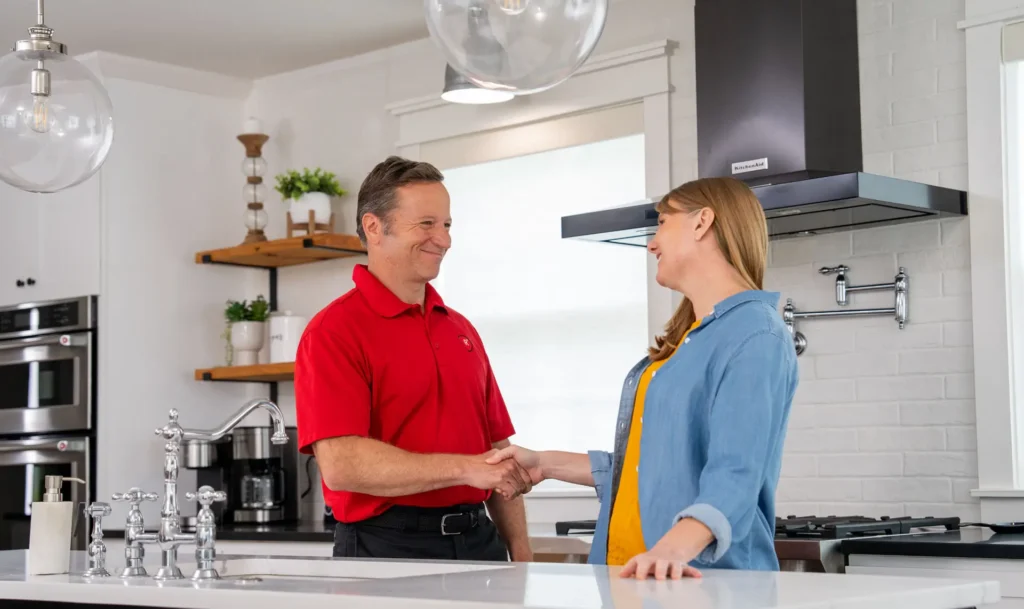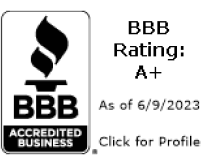Roth is Here to Keep You Safe & Comfortable
Whole home repiping can be a massive undertaking. Many homeowners put off this important project because they’re worried about the time it will take to complete, not to mention the cost. At Roth Home, we’re here to tell you that whole home repiping doesn’t have to be a hassle. With more than 40 years of industry experience, we’re well-equipped to provide you with the fast, reliable, custom plumbing solution you need. If you’re looking for whole home repiping in Portland or Central Oregon, give us a call! We’re happy to answer your questions and help you find the option that’s right for you.
Do You Really Need Whole Home Repiping?
There are a variety of circumstances that can lead to the need for whole home repiping. The best way to know that you need this service at your property is to schedule a plumbing inspection with a trained, professional plumber. Roth Home can help you determine if you need whole home repiping in the Portland metro area, including Tigard, Beaverton, Sherwood and beyond.
You might need whole home repiping if you’ve experienced pipe damage due to any of the following:
- Frozen pipes
- Burst pipes
- Fire damage
- Foundation “settling”
- Landscaping accidents
Signs of Hidden Pipe Damage
How can you tell you have pipe damage? Look for extra lush areas of your lawn, or standing water in your yard. This can indicate a hidden water leak. Other signs to look out for include unexplained increases in your monthly water bill, water damage to your ceiling or walls, damaged floors, the sound of running water when all faucets are turned off, and mold/mildew growth. If you notice any of these signs, it’s wise to schedule a plumbing service with our team. Even if your pipes are not damaged beyond repair, you may have a hidden water leak. If left unchecked, such a leak could lead to serious property damage—and expensive repairs.
What Should I Do if My Pipes Freeze?
Frozen pipes are a serious issue. If you don't take care of the problem right away, you may need to replace your entire plumbing system. Your pipes are at risk of freezing when the temperature outside gets cold enough and causes the water inside your plumbing lines to freeze. This puts an immense amount of strain on your plumbing. If the water has nowhere to expand to, it puts pressure on the sides of your pipes, which could cause the pipe to expand, crack, and even start to leak. The most common signs of this include:
- Condensation on the outside of your pipes
- No water coming out when you turn on a faucet
If you notice either of these signs, call a plumber immediately. Here are a few things you can do if your pipes freeze this winter:
- Keep a faucet open. As the ice in your plumbing starts to melt, water will start to flow due to the pressure from the municipal supply. Opening your faucet will help this water melt the rest of the ice in your lines, expediting the defrosting process.
- If you have a crawlspace under your home, where it’s common to find exposed plumbing lines, use a portable space heater to warm the area and melt the ice in the plumbing lines. Be sure to keep an eye on this heater, keep it away from flammable materials, and make sure no leaks have formed that could cause serious damage.
- Find the frozen area. Keep your eyes open for exposed plumbing lines and see if you can figure out where the freeze has occurred. If you do, use an electric heating pad, electric hair drier, or towels soaked in hot water to melt the ice and get the water flowing smoothly again. If you can’t find the frozen area or if the frozen area is inaccessible, contact a Portland or Central Oregon plumber for assistance immediately.
- Finally, whatever you do, do not use an open flame to try and thaw your plumbing lines. Blowtorches, kerosene or propane heaters, charcoal stoves, or other open-flame devices can not only get too hot for your plumbing lines and risk damaging them, but could even cause a fire to start in your home. Stick with electric heating systems only, and only use them while you can keep a close eye on them to prevent home damage.
Even if your pipes are working fine at the moment, it's important to run through this checklist to make sure they stay running and clear of ice:
- First, look around your outdoors for exposed water lines, as well as indoors in areas that are not heated or otherwise temperature controlled. Keep a list of where these areas are, and head to your local home improvement warehouse to pick up some pipe insulation. Usually available for just a few dollars per foot and taking only a few minutes to install, this small but effective foam roll dramatically reduces the amount of pipe left exposed to the elements, thus preventing the pipe from freezing and reducing the chances it becomes damaged.
- For your exposed faucets or fixtures, such as garden hose connections, freezing can cause broken valves, leaky attachments, and much more. The best way to prevent this is by covering the fixture with an insulated cap or dome. These take just a few minutes to put in place and keep the blistering cold air out, preventing damage.
- Finally, if you have any indoor faucets or fixtures in areas that are not climate controlled, turn on the faucet and let it drip slowly during these cold hours. This slow drip helps alleviate pressure should the pipes freeze over by giving the water some area and space it can expand to. While it may not stop the water from freezing, it can prevent the water from freezing and putting pressure on the walls of your plumbing, which means that your plumbing should work just fine again once the pipes defrost.
Trust Our Highly-Trained Team
At Roth Home, we work quickly and efficiently to provide you with top-quality whole home repiping in Portland and Central Oregon. We do our best to not disrupt your daily life, keeping clean workspaces and minimizing damage to your property while we work. We offer affordable options and convenient scheduling to fit your needs.
Recommended Reading:

















